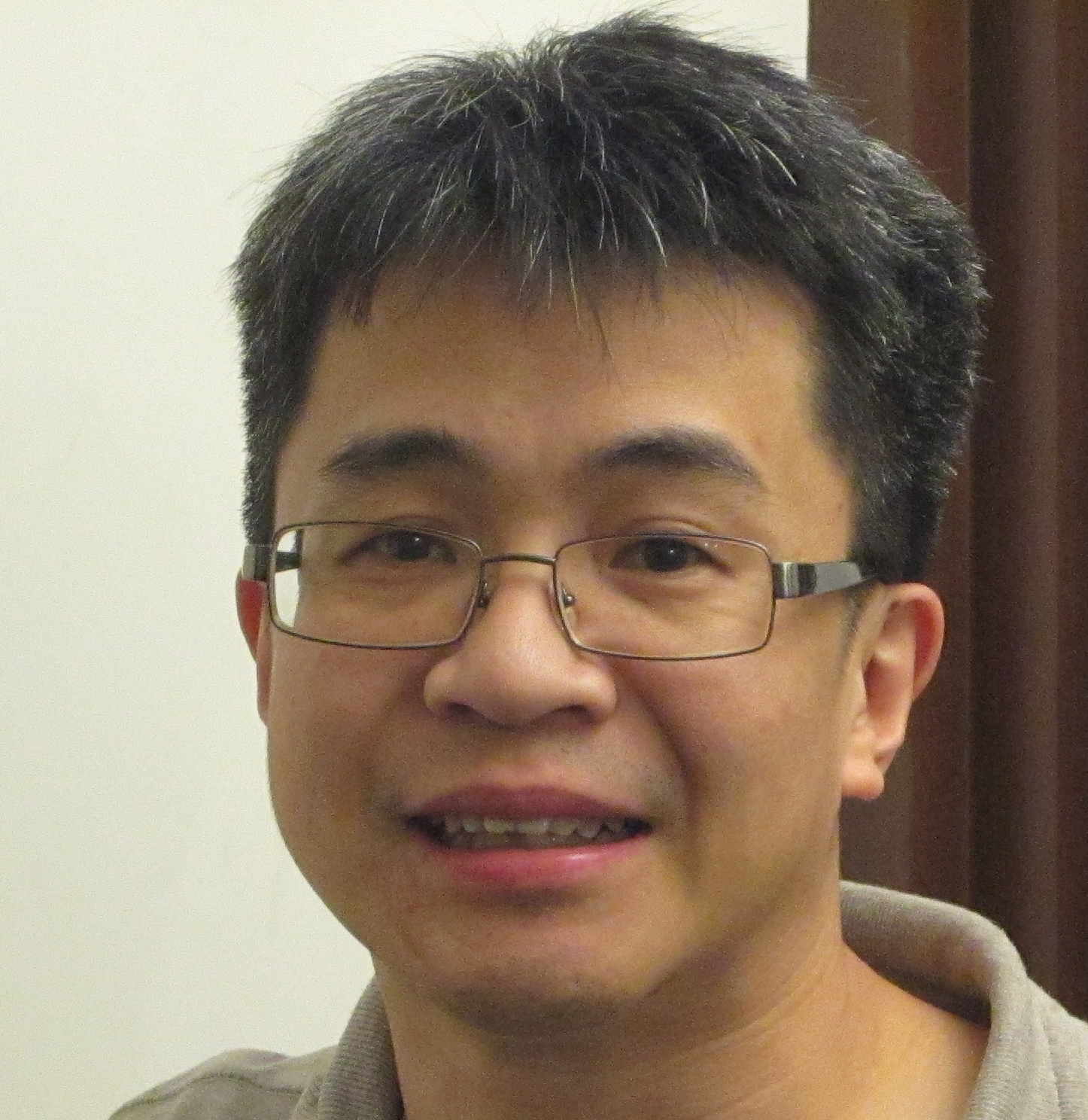Dr NG Yuen Keng

Lecturer
BSc (Hons), MPhil, PhD, MB(ASCP)CM, Registered MLT Part II
Telephone: 3943 9426
Email: This email address is being protected from spambots. You need JavaScript enabled to view it.
Address: 610N, Choh-MIng Li Basic Medical Sciences Building, CUHK
Biography
Dr NG Yuen Keng (伍儒敬) is a Lecturer in the School of Biomedical Sciences, CUHK since 2015. Before joining CUHK as a lecturer, Dr. Ng was a technical specialist for Next Generation Sequencing in the Molecular Genomic Pathology Division of the University of Pittsburgh Medical Center. He received his BSc (Hons) and MPhil degrees in Biochemistry from CUHK. After obtaining his PhD degree in Molecular Pharmacology from University of Pittsburgh, Dr. Ng continued his post-doctoral trainings in Duke University and University of Pittsburgh afterwards. As an academic research scientist, Dr. Ng’s research interests include neuropharmacology, spinal cord neuronal regeneration, neonatal micturition control development, and liver cancer cell biology. At present, he is involved in the teaching of Molecular Biology, Biochemistry, Clinical Biochemistry, Bioethics in the MBChB, BPharm and BSc in Biomedical Sciences programmes.
- Clinical next generation sequencing tests
- Live cell fluorescent microscopy imaging
- Cancer cell Biology and preclinical studies of molecular cancer therapeutics
- Neurophysiology of neonatal bladder disorder
- E-learning courseware development for Pharmacology
- Xu, J., Zhou J., Li M.S., Ng C.-F., Ng Y.-K., Lai P.B.S., Tsui S. K.-W. (2014). Transcriptional regulation of the tumor suppressor FHL2 by p53 in human kidney and liver cells. PLOS One. Aug 14;9(8):e99359.
- Wong I.C., Ng Y.-K., Lui V.W. (2014) Cancers of the lung, head and neck on the rise: perspectives on the genotoxicity of air pollution. Chin. J. Cancer. 33(10):476-80.
- Ng Y.-K., Stabile L.P., Supko K. M., Lee J.-Y., Gubish C., Torres S. M., Berwick M., Ho J., Siegfried J. M. (2014). Pan-erbB inhibition potentiates BRAF inhibitors for Melanoma Treatment. Melanoma Res. 24(3):207-18.
- Ng Y.-K., Lau W.S., Lui V. W. Y., Ng P.K.-S., Tsui S. K. W., Cheng A.S.L., Lai P.B.S. (2012). Full Length Mst1 Exhibits Growth-Promoting Function in Human Hepatocellular Carcinoma Cells. FEBS Lett. 587(5):496-503.
- Ng Y.-K., Lui V. W. Y., Wong E.Y.L., Lau C., Wong S.C.C., Yau D.M.S., Tsang C.M. Tsao S.W., Chan A. S.K., Kwan M.P.C., Lai P.B.S., Chan A.T.C. (2010). K252a Induces anoikis-sensitization with suppression of cellular migration in Epstein-Barr Virus (EBV)-associated nasopharyngeal carcinoma cells. Invest New Drugs.30:48-58.
- Ng Y.-K., Wu H.Y., Lee K.H., Yeung C.K. (2010). Bladder reduction surgery accelerates the appearance of spontaneous voiding in neonatal rats. J. Urol. 183:370-7.
- Ng Y.-K., de Groat, W.C., and Wu, H.Y. (2007). Smooth muscle and neural mechanisms contributing to the down-regulation of neonatal rat spontaneous bladder contractions during postnatal development. Am. J. Physiol Regul. Integr. Comp. Physiol. 292: R2100-2112.
- Ng Y.-K., de Groat, W.C., and Wu, H.Y. (2006). Muscarinic regulation of neonatal bladder spontaneous contractions. Am. J. Physiol. Regul. Integr. Comp. Physiol. 291:R1049-R1059.
- Ng Y.-K., Lu, X.H., and Levitan, E.S. (2002). Physical mobilization of secretory vesicles facilitates neuropeptide release by nerve growth factor-differentiated PC12 cells. J. Physiol. (London). 542 (2): 395-402.
- Han, W.P., Ng Y.-K., Axelrod, D., and Levitan, E.S. (1999). Neuropeptide release by efficient recruitment of diffusing cytoplasmic secretory vesicles. Proceed. Natl. Acad. Sci. U.S.A. 96 (25): 14577-14582.
- Courseware Development Grant 2018-19, CUHK [Co-I, Sep 18 to May-2019]: “Articulation of Metabolic Pathways using Articulate Storyline (Oi-Volcano)” (HK$ 89,295)
- Micro-Module Courseware Development Grant 2017-18 (Additional Call), CUHK [Co-I, Mar 2018 to Aug 2018]: “Nurturing Critical Thinking for Holistic Patient and Psychiatric Drug Therapy Assessment with Utilization of Virtual Pharmacy Simulation” (HK$ 99,808)
- Teaching Development and Language Enhancement Grant 2016-2019 Triennium, CUHK [Co-I, Dec-2016 to Jul-2018]: “Active learning through an immersive virtual reality environment IVR, awarded by The Chinese University of Hong Kong” (HK$ 800,000).
- Teaching Development and Language Enhancement Grant 2016-2019 Triennium, CUHK[Co-PI; Jan-2017 to Jun2019]: “Application of Augmented Reality (AR) and Virtual Reality (VR) for Teaching Multidisciplinary Topics in Biomedical Sciences” (HK$ 496,980).
- Teachers Of The Year Awards 2020 in Biomedical Sciences and Medicine Year 3 teaching, Faculty of Medicine, CUHK.
- 2nd Place Award in Urology Basic Science Prize Contest 2010, American Academy of Pediatrics.
